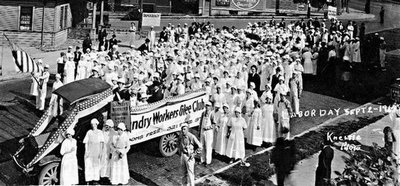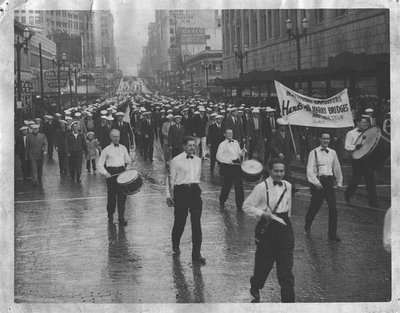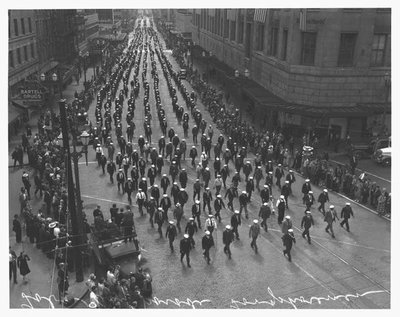August 31, 2010
Labor movement, UW collaborate on labor archive for Washington state
The University of Washington, working together with organized labor and many individuals interested in preserving labor history, is creating an archive that will ensure that documents chronicling the labor heritage of Washington state are preserved and made available to wide audiences.
The archive will become one of the premier bodies of labor related material in the country, says James Gregory, professor of history. “We are rescuing wonderful collections, some of which already have been donated to the UW Libraries, and others which are still in private hands. It is critical that these materials are preserved before they are damaged or disappear. This unique collaboration with organized labor in Washington was essential to make this archive possible.”
Major gifts from labor unions and individuals, including from the Washington State Labor Council, representing more than 500 unions with more than 400,000 members, are supporting the archive. Local labor affiliates have responded with their own donations, and also have submitted collections of valuable historical records.
“We are proud to participate in the creation of this archive,” says Rick Bender, president of the Washington State Labor Council. “This state has a rich labor history that is critically important to preserve, so that the next generation can understand how labor became such a strong force in Washington.”
The labor archive, housed in the University Libraries Special Collections, will serve as a center for historical research and as a repository of information that can be used by teachers and others interested in exploring this state’s labor history. “We already have between 50 and 60 collections, containing hundreds of boxes of materials, Gregory says. “The documents come from major labor unions as well as smaller groups and individuals. Washington has a long and distinguished labor tradition, which is woven into the history of the state and its major industries — at the docks, in timber, and in the aircraft industry. The labor movement has affected all of us in Washington. The labor archive will reflect not just the activities of organized labor but the history of people who have worked for social justice.”
Gregory says that the papers of Tyree Scott, who was a key figure in the United Construction Workers Association of the 1970s when that group organized in opposition to discriminatory hiring practices, were nearly lost because they were kept in a shed in his back yard. “Heroic work by UW archivists has allowed us to save some important collections, but we know that history is being destroyed every day. And much of it is irreplaceable.”
So far, about $250,000 has been donated, which will fund about three years of work, including the hiring of an archivist, who will work jointly with UW Libraries and UW’s Harry Bridges Center for Labor Studies. The archive will become a key component of the UW’s Special Collections Library, and the plan is to bring portions of the archive online, along with educational projects for union members, schools and the general public.
The UW archive will become part of an elite group of places with extensive collections of labor-related material, including: the Labor Archives & Research Center at San Francisco State University, the Walter P. Reuther Library at Wayne State University, the Tamiment Library & Robert F. Wagner Labor Archives at New York University, and the labor archives at Carnegie Mellon University.
Major donors to the labor archive include the International Longshore and Warehouse Union, the Washington State Labor Council and the UW’s Bridges Center. The ILWU is contributing $150,000 in matching funds for the project.
###
For more information, contact: James Gregory, gregoryj@uw.edu, 206-543-7992 (ofc), 206-523-5514 (cell); or Rick Bender, Washington State Labor Council, 206-281-8901.





